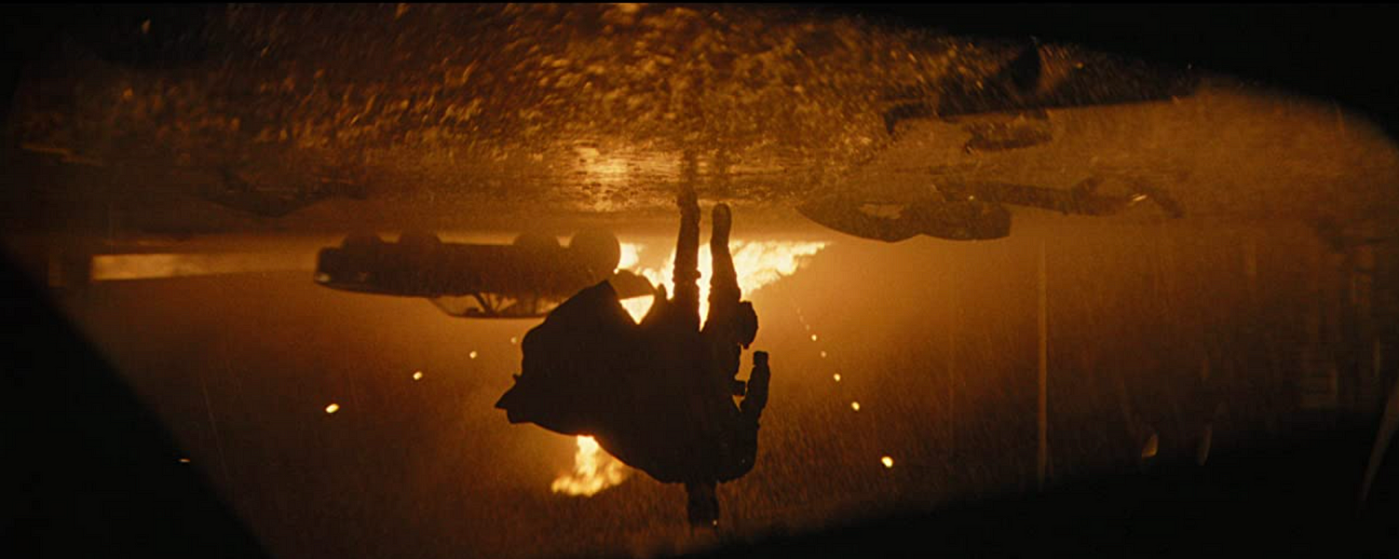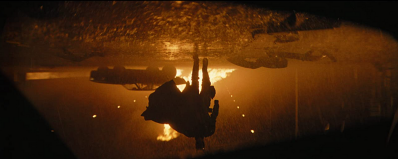Batman villains have a way of being fitted to our times. In 2008, the Dark Knight suited up against a terrorist in post-9/11 America. In 2012, he fought Occupy Wall Streeters. In 2016, Batman went toe-to-toe with Superman, but only because Mark Zuckerberg manipulated them into fighting. And now in The Batman, the titular hero faces a foe that will once again seem familiar to American audiences: QAnon.
For all the comparisons the film’s version of the Riddler gets to the Zodiac Killer—and they are fair comparisons given his appearance and modus operandi—the character has even more in common with QAnon and other radical online communities of conspiracy theorists. The Riddler (Paul Dano) is an overly online incel obsessed with the idea that Gotham City’s ruling elite are corrupt and that a cabal of the elite are part of a deep state-esque conspiracy to line their pockets. He builds up an online following of acolytes who listen to his every missive and plot with him to save the city by murdering its corrupt ruling class. The QAnon comparison is, perhaps, not entirely fair to the Riddler and his army: They may be radicalized red-pilled loonies, but, unlike the QAnon crowd, they’re actually on to something. Working to solve the Riddler’s clues and prevent him from killing again, Batman (Robert Pattison), Catwoman (Zoë Kravitz), and Lt. James Gordon (Jeffrey Wright) unravel a mystery that ties powerful Gothamites to a variety of crimes.
It’s always difficult for filmmakers to find a way to differentiate a new Batman from his predecessors, but by putting the World’s Greatest Detective in the middle of a real mystery—something that’s been missing from past cinematic incarnations—The Batman succeeds on that front. Michael Keaton, Christian Bale, and Ben Affleck all played dark Batmen, but Robert Pattinson’s is ripped from a noir mystery; he’s a morally complicated gumshoe trying to solve a twisted and complicated series of murders. This new Batman is grimmer, moodier, and more violent than his predecessors. He pummels thugs within an inch of their lives, declaring that he is “vengeance.” His Gotham is darker and more corrupt than any Gotham we’ve seen before, and his villains are more realistic and terrifying than Keaton and Co. ever faced.
Corruption and decay fill the city, creating large swaths of citizens who feel those in charge aren’t actually helping them. There has been a Gotham Renewal Fund for 20 years, but no renewal has taken place in the city. The Riddler and his followers see themselves as Batman-type heroes, ridding the city of criminals and helping the common man. When asked by Gordon who he is, one of the Riddler-acolytes responds, borrowing a line from Batman: “I’m vengeance.”
He is. And so is Batman. Vengeance motivates the Riddler and Co. the same way it motivates Batman, something that makes the Riddler assume Batman is on his side, an assumption that so unnerves Batman it forces him to think about his methods. By the end of the film, Batman declares in a monologue that the best way to help a world that’s broken and corrupt and to help people that feel left behind isn’t vengeance. Talk of revenge, of fear, of “owning” one's enemies, only makes things worse. What the world really needs, Batman realizes, is hope.
The Batman is set during Bruce Wayne’s second year as a crime fighter. He isn’t yet a fully formed hero, he makes mistakes, he’s harsher and more unforgiving than other adaptations, and outside of the mask he’s a moody emo kid, a far cry from the billionaire playboy philanthropist we typically see. The Batman sets him up on his journey to be a better hero and a better person, ending with an optimistic message that helps the hero and can help us all.







Please note that we at The Dispatch hold ourselves, our work, and our commenters to a higher standard than other places on the internet. We welcome comments that foster genuine debate or discussion—including comments critical of us or our work—but responses that include ad hominem attacks on fellow Dispatch members or are intended to stoke fear and anger may be moderated.
With your membership, you only have the ability to comment on The Morning Dispatch articles. Consider upgrading to join the conversation everywhere.